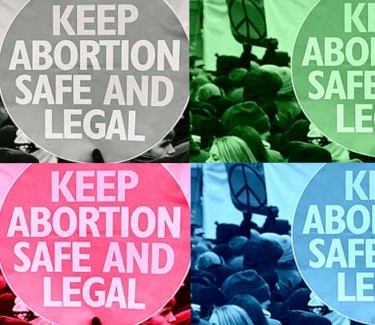Why ‘Tolerating’ Your Queer Loved Ones Is Dangerous

tolerance isn't love
June 14, 2016When I first came out to my parents, I was terrified.
I mean, who wouldn’t be? As evidenced by recent events, “queerness” is not exactly a universally-accepted concept in mainstream society. In fact, since its early acknowledgment, it has been deemed a form of social eccentricity. It is a rising, but not yet popular “culture” (as would be described by a favorable percentage of straight, cisgender people). Even with recent legislation operating in favor of queer rights, queer individuals still need to remain cautious of discrimination they can face in their daily lives.
Still, things have been getting seemingly “better” for queer people of this generation. While the “culture” has not yet been normatively integrated into the global social scheme, there has undoubtedly been an escalation in general toleration of queer people. For those who are acting out this toleration, it may seem like a sufficient stance to hold. But I, a queer person living in 2016 America, am going to tell you something that is imperative to the wellbeing of your loved ones: “Tolerating” them will no longer cut it.
See, my parents love me, but they tolerate my queerness. In fact, they tolerate my queerness because they love me. My coming out story is actually pretty awful. To spare the painful details, I will keep it brief. It happened my first semester of college, when my parents came to visit me. They came across some text messages and questioned me about them, and I—scared and vulnerable—succumbed. They reacted by screaming things that, admittedly, caused some irrevocable damage to my psyche. I expected this, though. The queer protagonists from the coming-of-age novels and films I had read and watched prepared me for the inevitable rejection. I thought I would never speak to my parents again.
I was surprised, then, when I received a call about two weeks later; my father on the other side of the line crying and apologizing for his rash words and my mother inquiring about my mental wellbeing. I knew from their genuine concern that they still loved me; that they still cared. They had made a conscious effort to pick up the broken pieces of my identity that they had shattered. I was content with their remorse. But those pieces still remained unstuck.
Years passed, and the impact of their initial words lessoned with every season. They had made the decision to tolerate me. I appreciated it. But I wondered when we would speak of it again.
Last year, in June of 2015, I attended the Pride Parade in New York City. When I returned home, full of optimism, my father asked me how I enjoyed my trip. Finally, a good surprise. My mother remained silent. She had prepared hot pasta, but the look on her face made it cold to the touch. I felt a stabbing in my heart. Turning my attention back to my father, I replied with one word: “Good.” He nodded, almost mechanically. My mother ate quickly and went upstairs. He followed to watch “the game.” It was then that I understood this was something we still couldn’t talk about.
But the silence of their tolerance consumes me. It puts me at a perpetual unease. The silence of their tolerance is violent. And they don’t even know it. I have had enough tolerance up to this point.
What does tolerance mean anymore?
It means having to do a double-take in the mirror before meeting up with your parents, because you don’t want to have to play 20 questions about your “identity crisis” if you’re looking “too” queer. And when you decide that you do, you change into something that makes you highly uncomfortable. But you suck it up because it’s only temporary until you get your own place.
It means sitting in anxiety next to your parents as you watch television, hoping to the highest power of your faith that whatever program you’re watching doesn’t contain queer innuendo—or worse—an actual queer character. And you are ashamed of this. Because you understand that representation is important for the LGBTQ community. It’s important to you. But you don’t say it. You can’t. So you just make an excuse to leave. And then they grill you about why you have been so distant.
It means—while watching CNN for updates on a heinous hate crime against the LGBTQ community—your father admitting that while he doesn’t agree with the “homosexual lifestyle,” it is “bullshit” that someone would kill anyone for such a reason. And you want to feel glad that he condemns the murdering of people like you. But all you hear are the words “homosexual lifestyle” ringing in your mind, in his voice. As if it were by choice. As if you all were one figurative glob of the same “agenda.” And not humans with individual traits and preferences and passions like everyone else. But this statement is one of tolerance. After all, it’s not like he celebrated the trauma with a “Hoorah! Down with all the gays!”
Shouldn’t you be grateful of that?
Apart from the big charade almost four years ago, I have kept my queerness silent to my parents, and to those who are close to them. Because underneath the veil of my parents’ “tolerance,” there lives shame.
Shame.
We are still ashamed to see two people of the same-sex walking down the street, hand-in-hand. We are ashamed to see that people have the basic human right to live as the genders they were meant to be, as opposed to the stereotypes of the sexes that were given to them at birth. We are ashamed that it had to be our family member that “chose” to be a certain way. It infuriates some of us to no end, sometimes. But we tolerate it. Because we have to. Because, what else can be done? I mean, in the name of God and most other deities, we are supposed to “love thy neighbor.” Right?
But when you singlehandedly determine which facets of someone are worth acknowledging and which are not, you are evading the task of “loving” wholeheartedly. Without true acceptance of all humans, people will continue to provide individuals an excuse to act on behalf of their disdain for certain qualities of others. It is in these moments that things often turn violent.
And I am terrified.
I am terrified of the potential that this could resonate with many of you, and educate the others. I am terrified that because of this, this piece could appear—with my byline proudly at the bottom of it—on a distant family member’s Facebook timeline; one who doesn’t hold the personal capacity to “love” me; one who doesn’t even believe in the notion of “tolerance” when it comes to “those people”; one who so starkly thrives on their hatred that they would say something to disgrace my parents’ reputations. And that would be awful. Because the when you exploit someone’s shame, there is no predictable outcome. There is no guarantee of safety. There is only embarrassment, anger, impulsiveness.
When we perpetuate the idea of “tolerance,” we are only enabling a gateway for the more radical-minded to act on our suppressed sentiments. Tolerance is lethal. And we are all partially responsible for this.
***
Lead image: flickr/Tony Webster
















Continue the conversation on Facebook and Twitter.